Recent off the rack it seems like a scorching climate improve, however a couple of spins via the washer and it hangs off your torso like wrinkly, moist cardboard.
Impressed by a reader query by Zak, a Primer subscriber since 2017.
Linen is all the time described prefer it was elected summer season’s golden youngster. Ethereal, cool, mushy, works with loafers, sneakers, beneath a go well with, even as a go well with. Then you definitely purchase an inexpensive shirt on sale, and after two wears the placket lays like the perimeters of lasagna noodles, the material looks like a loofah, and the entire thing seems such as you’ve been utilizing it as a seaside towel.
The reason is straightforward: linen just isn’t one factor. It’s many issues, and a few of them are horrible.
1. The fiber itself: lengthy vs. quick, wet-spun vs. dry-spun
Linen comes from flax, and mills divide it into the lengthy, shiny stuff known as line and the quick damaged bits known as tow. Line is powerful, easy, and able to be woven into cloth you would possibly truly take pleasure in touching. Tow is the unhappy leftovers: splintery, linty, and higher suited to stuffing a scarecrow.
Low cost shirts lean laborious on tow, which is why yours feels prefer it belongs within the store towels bin. Trade definitions make it sound extra dignified, however basically, tow is cloth mulch.
Spinning issues too. Moist spinning lengthy flax offers easy, positive yarns that glide on the pores and skin. Semi-wet or dry spinning quick fibers creates scratchy ropes you might use to tie down a canoe. And that distinction doesn’t ever wash out. Premium European mills, who personal the popularity for good linen, nonetheless wet-spin long-line flax.
Manufacturers typically tout “European linen” which often means flax grown in Western Europe (France, Belgium, the Netherlands). These areas have the local weather and historical past for producing the world’s greatest long-line flax. It’s usually a great signal, even with out paperwork. Certifications like Masters of Linen or European Flax exist, however they’re uncommon to see in regular shops Primer hyperlinks to; consider them as bonus credibility stamps for those who occur throughout them.
Different certs will seem reminiscent of OEKO-TEX Normal 100 like on Quince’s linen shirt, however these are completely different: they affirm the material has been examined for dangerous chemical substances, not that it’s mushy or sturdy. Good for peace of thoughts, however unrelated at hand really feel.
It is doable to search out 100% linen shirts at finances manufacturers, however for choices on the cheaper finish, I truly choose a linen-cotton mix. The cotton takes away a number of the scratchiness and cussed creasing you get with low-grade linen, even for those who lose a little bit of the ethereal texture and drape.
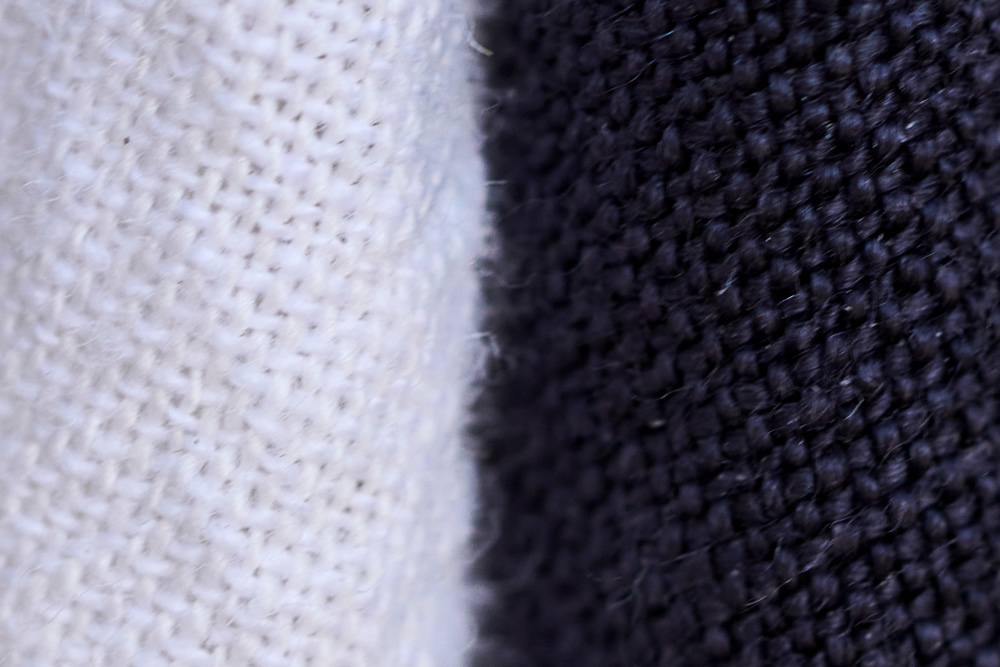

So what to search for when buying? On a tag or product web page, “European linen” is price noting. In the event you occur to see certifications like Masters of Linen, even higher, although unlikely. In particular person, belief your palms: easy and silky often indicators long-line, wet-spun fiber, whereas tough and bristly factors to tow, dry-spun.


2. Yarn engineering: depend, twist, and ply
Two shirts each say ‘100% linen.’ One feels mushy and drapes, the opposite can virtually rise up by itself. That’s twist. Larger twist yarns are wound tighter, so the material seems stiffer and creases into sharp traces. Decrease twist yarns really feel smoother and fall into relaxed folds, just like the darker cloth within the photograph.
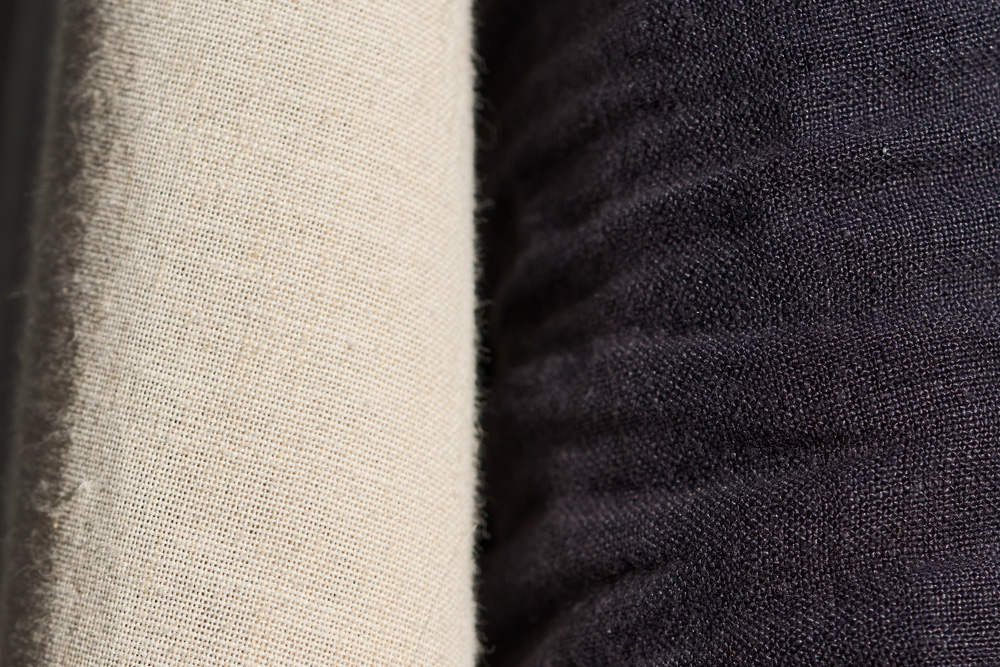

However when low-cost shirts use quick tow fibers, it’s a special story: the creases set laborious and scratchy, much less mushy rumples and extra cardboard bends.
Then there’s ply. Singles have a tendency to torque, which suggests your shirt spirals like soft-serve. 2-ply balances the yarn, and the material hangs the way in which a shirt ought to. Textile engineers have documented this in ways in which would bore you into an early nap.
So what to search for when buying? Most manufacturers gained’t point out twist, however “2-ply” will typically sneak into product copy the way in which “grass-fed” sneaks onto menus. In the event you see it, that’s a inexperienced mild. In any other case, belief your palms: materials that really feel agency and papery are often excessive twist singles, whereas those who really feel smoother and loosen up in your grip are extra probably decrease twist or plied.
3. Weave and building: why some linen hangs superbly
Two levers: weave and cowl issue. A good plain weave feels crisp and stiff. A looser plain or a twill feels relaxed and swings higher. Fewer interlacings additionally imply the wrinkles look much less like origami disasters. If you need flowy shirts, go unfastened or twill. If you need collars that stand like little troopers, go tight. Researchers have total charts on this.
So what to search for when buying? Maintain the shirt as much as mild. If the material seems dense and blocks most of it, count on crispness. In the event you can see a little bit of daylight between the threads, it’s looser and can drape extra.


4. Ending and dyeing: the place a number of the “hand” comes from
Mushy linen isn’t just good flax, it’s good chemistry. Amino-silicone softeners and enzymes strip away the fuzz and slick the floor. Garment dye packages and managed tumbles give that day-one softness, the way in which some denims come pre-faded for individuals who need the lived-in really feel on Day 1.
The draw back: anti-crease resins. They assist wrinkle restoration however go away cloth stiff, typically weak. In case your shirt feels prefer it’s been starched on the manufacturing unit and stays that method, you’ve most likely obtained resin within the combine or a synthetic-linen mix.
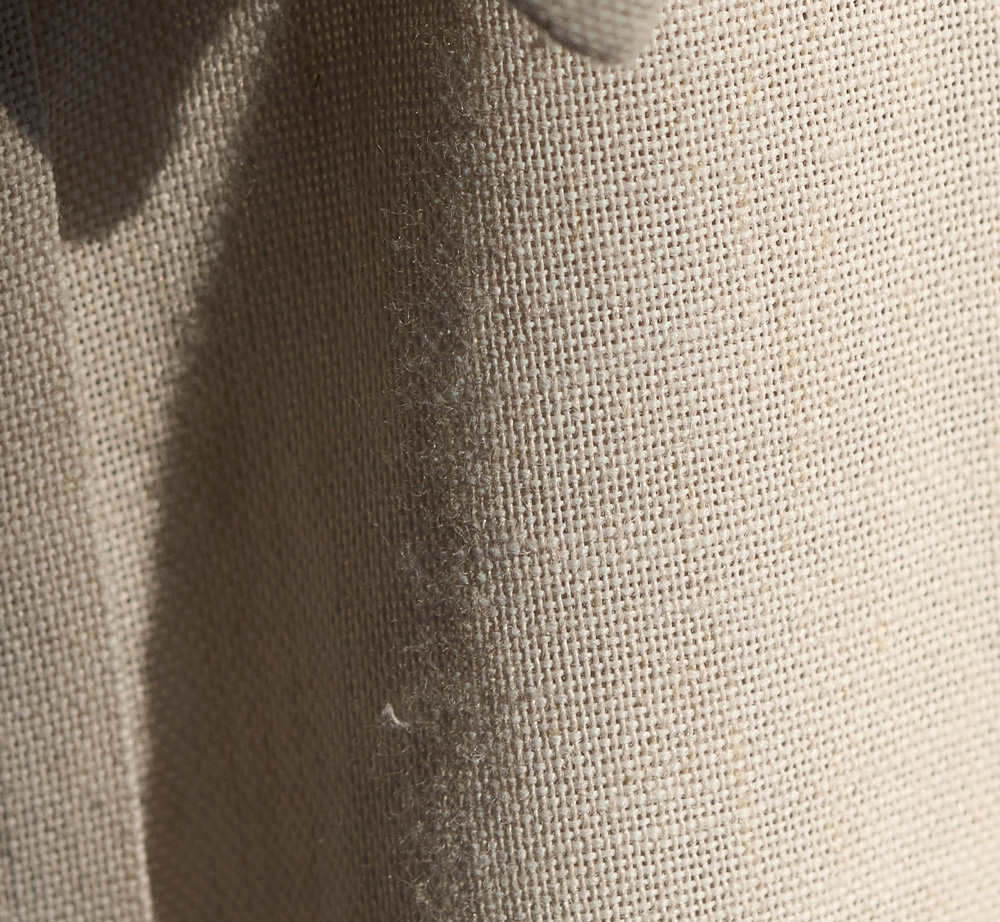

Wrinkle-free linen does have its place. In the event you’re sporting a shirt for lengthy days at work, you get the breathability and lighter weight of linen with the smoother, extra polished floor that wrinkle-free manufacturing locks in. What you hand over are the large, rolling creases and the drape that make good untreated linen look alive. It’s much less relaxed Mediterranean vacation, extra office-ready compromise that serves as a lighter various to a typical oxford fabric.


So what to search for when buying? Scan product descriptions for “garment dyed,” “enzyme wash,” or “mushy wash.” These often imply softer linen from day one. If the tag brags about being “wrinkle resistant,” be ready for cloth to lack the softness and drape linen is understood for.
5. Make high quality: why your placket curls
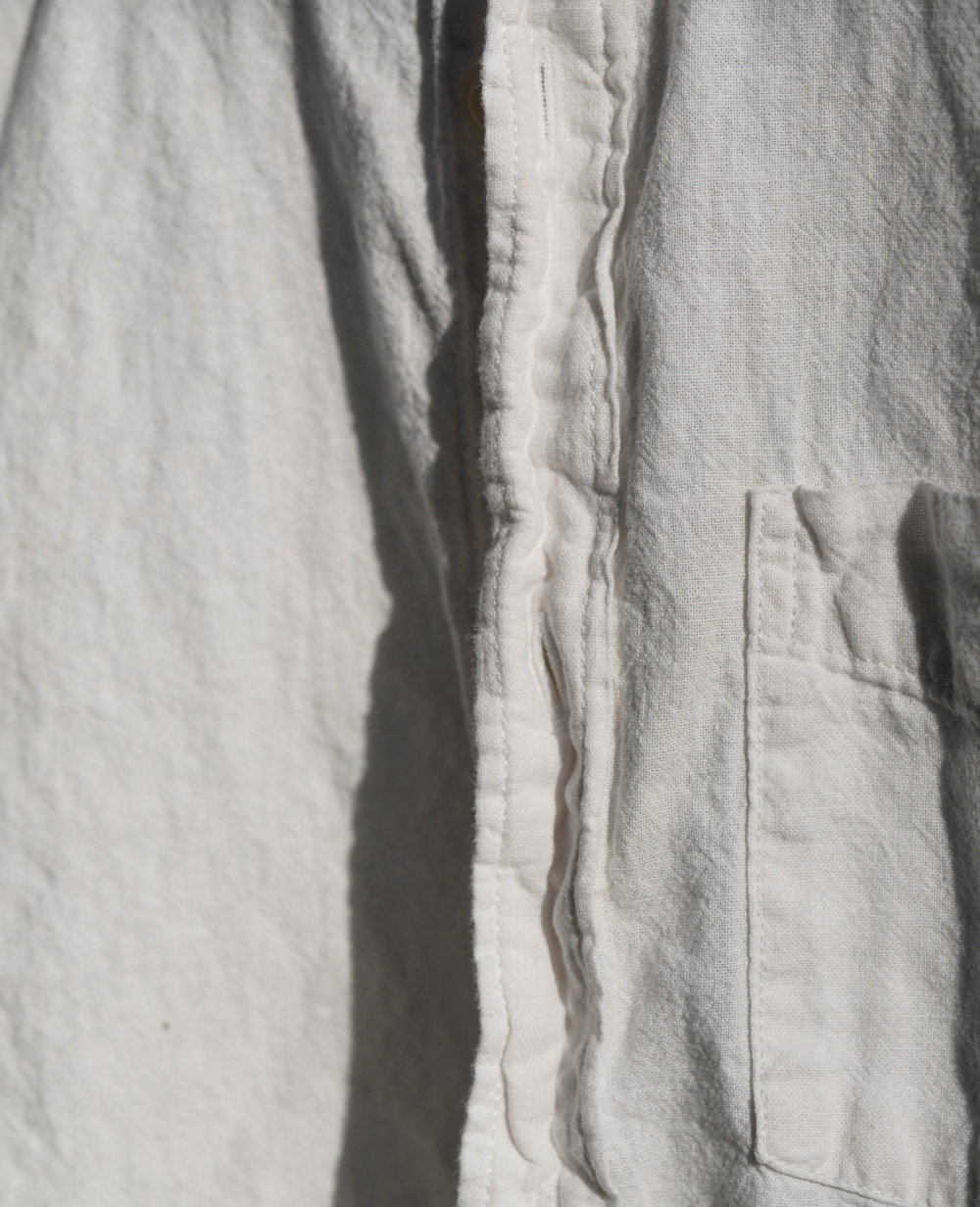

We’ve talked in regards to the distinction higher yarn and weaving make, however how the shirt is definitely put collectively issues simply as a lot. What makes a nicer shirt completely different isn’t all the time apparent from the surface. Even with the identical sewn-on placket type, higher makers reduce on grain, sew with even pressure, and preshrink earlier than stitching, so the placket holds its form as a substitute of curling or twisting after a couple of washes.
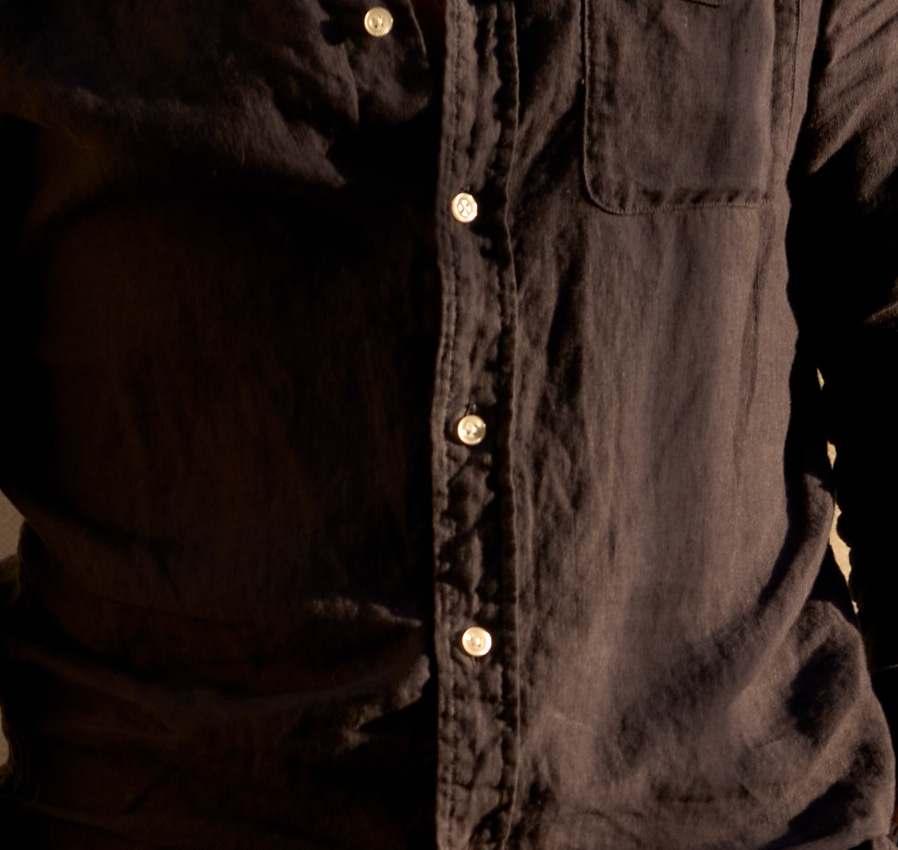

That extra cash often buys the works: long-line fiber, wet-spun yarn, intelligent yarn engineering, higher weave, softer ending, garment dyeing, and factories that truly verify their work. Search for phrases like wet-spun, 2-ply, garment dyed, or these European certifications. They’re breadcrumbs main away from shirts that really feel like sandpaper.
So what to search for when buying? Sadly (and clearly) costlier would not mechanically equate to high quality. Typically, manufacturers which might be identified to have an honest high quality to cost ratio like J.Crew can often be trusted for his or her 100% linen. Sadly under that (Hole, Previous Navy, Uniqlo, and so forth.) and you are going to run into cheaper linen or blends.
The worth bounce often covers issues you may typically spot within the description: “lengthy line,” “wet-spun,” “2-ply,” or “garment dyed.” These key phrases trace that you simply’re getting smoother cloth, softer ending, and shirts that behave higher after a wash. The sensible transfer is shopping for from one in every of these trusted high quality manufacturers when the linen is on sale. For that, ensure to subscribe to Primer to remain updated on all of our deal protection.
7. Fixes for a cussed shirt
A heat iron, steam, and a press fabric will assist revive low-cost linen, however that turns into routine upkeep. It’s often extra time and value efficient to spend a bit extra on a shirt that drapes nicely and desires far much less fuss.